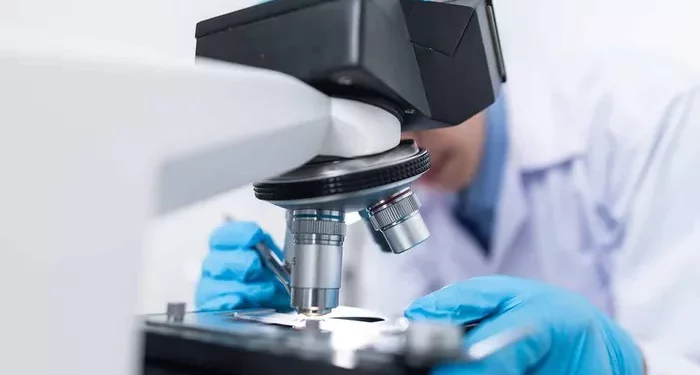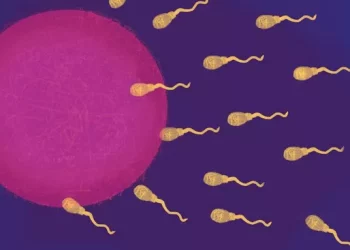Azoospermia, the medical term for the complete absence of sperm in the ejaculate, is a significant cause of male infertility. It is classified into two main types: obstructive and non-obstructive. Obstructive azoospermia occurs when there is a blockage in the reproductive tract that prevents sperm from being present in the ejaculate, whereas non-obstructive azoospermia is due to a failure in sperm production.
Ayurveda, the ancient Indian system of medicine, offers a holistic approach to treating various health issues, including male infertility. Ayurvedic treatment emphasizes the balance of bodily energies, known as Doshas, and utilizes natural remedies, dietary modifications, and lifestyle changes to restore health and vitality.
Ayurvedic Understanding of Azoospermia
In Ayurveda, health and disease are viewed through the lens of three fundamental energies or Doshas: Vata, Pitta, and Kapha. These Doshas govern all physiological and psychological functions in the body and mind. For optimal health, it is crucial that these Doshas remain balanced.
Vata Dosha is responsible for movement and communication, including the transport of nutrients and waste products. An imbalance in Vata can lead to poor circulation and disruption in the transport of sperm.
Pitta Dosha governs digestion, metabolism, and transformation. When Pitta is imbalanced, it can affect the hormonal balance and the functioning of the testes, impacting sperm production.
Kapha Dosha provides structure, lubrication, and stability. An excess of Kapha can lead to stagnation and blockages in the reproductive system, contributing to obstructive azoospermia.
Azoospermia can result from imbalances in any of these Doshas. For instance, a Vata imbalance might impede the transport of sperm, a Pitta imbalance might disrupt hormonal regulation and spermatogenesis, and a Kapha imbalance might cause physical obstructions in the reproductive tract.
Treatment Strategies
Herbal Remedies
Ayurvedic treatment for azoospermia often begins with the use of specific herbs known to support male reproductive health. These herbs help balance the Doshas and improve overall vitality and sperm production.
1. Ashwagandha (Withania somnifera): Known as a powerful adaptogen, Ashwagandha helps reduce stress, which can negatively impact sperm production. It enhances the body’s resilience and supports hormonal balance, which is essential for spermatogenesis.
2. Shatavari (Asparagus racemosus): Traditionally used to support reproductive health, Shatavari is believed to strengthen and nourish the reproductive tissues. It helps balance Vata and Pitta, promoting healthy sperm production.
3. Gokshura (Tribulus terrestris): This herb is commonly used to support urinary and reproductive health. Gokshura is known to enhance libido and improve the quality and quantity of sperm by balancing all three Doshas, particularly Vata and Pitta.
4. Safed Musli (Chlorophytum borivilianum): Safed Musli is renowned for its ability to enhance male fertility. It acts as a natural aphrodisiac and supports the production of healthy sperm by balancing Kapha and Vata Doshas.
5. Kapikachhu (Mucuna pruriens): This herb is known for its ability to enhance male reproductive health. It increases sperm count and motility and is particularly useful in addressing non-obstructive azoospermia.
It is essential to consult with a qualified Ayurvedic practitioner to receive a proper diagnosis and a tailored herbal formulation. Self-medicating with these herbs without professional guidance is not recommended, as improper use can lead to adverse effects and may not address the root cause of the condition.
See also: The Best Azoospermia Treatment in the World in 2024
Dietary and Lifestyle Modifications
Ayurveda places significant emphasis on diet and lifestyle as integral components of treatment. Certain foods and habits can either support or hinder the treatment of azoospermia.
Diet:
1. Nourishing Foods: Include foods that are rich in antioxidants, vitamins, and minerals such as fresh fruits, vegetables, nuts, seeds, and whole grains. Foods like milk, ghee (clarified butter), and almonds are particularly beneficial.
2. Spices: Incorporate spices like turmeric, cumin, and black pepper, which help improve digestion and enhance nutrient absorption.
3. Avoidance: Limit the intake of processed foods, caffeine, alcohol, and foods that are too spicy or oily, as they can aggravate the Doshas and impair fertility.
Lifestyle:
1. Stress Management: Chronic stress can significantly impact hormone levels and sperm production. Practices such as yoga, meditation, and pranayama (breathing exercises) are highly effective in reducing stress and balancing the Doshas.
2. Exercise: Regular physical activity helps maintain a healthy weight, improves circulation, and enhances overall well-being. Gentle exercises like walking, swimming, and yoga are particularly recommended.
3. Sleep: Adequate sleep is crucial for the body’s restorative processes, including hormone regulation and sperm production. Aim for 7-8 hours of restful sleep each night.
Panchakarma Therapies
Panchakarma, the Ayurvedic system of detoxification and rejuvenation, can play a supportive role in the treatment of azoospermia. These therapies aim to cleanse the body of toxins (Ama) and restore the balance of the Doshas.
1. Abhyanga (Oil Massage): Regular oil massage with specific herbal oils helps improve circulation, relax the mind, and balance the Doshas, particularly Vata and Kapha.
2. Swedana (Herbal Steam Therapy): This therapy helps open up the channels of the body, promoting the removal of toxins and improving circulation.
3. Basti (Medicated Enemas): Basti therapy is particularly effective for balancing Vata Dosha and cleansing the colon, which is essential for overall health and vitality.
4. Shirodhara (Oil Pouring on the Forehead): This therapy helps calm the nervous system, reduce stress, and balance the Doshas.
A qualified Ayurvedic practitioner will determine the most appropriate Panchakarma therapies based on the individual’s constitution and specific condition.
See also: 7 Causes of Azoospermia: Everything You Need To Know
Expected Outcomes and Considerations
Ayurvedic treatment for azoospermia is a holistic approach that addresses the root causes of the condition by balancing the Doshas, improving overall health, and supporting the body’s natural processes. The timeline for seeing results can vary depending on the severity of the condition, the individual’s constitution, and adherence to the treatment plan.
Typically, patients may begin to see improvements within a few months, but it is essential to maintain a consistent regimen of herbal remedies, dietary and lifestyle modifications, and, if recommended, Panchakarma therapies. Patience and commitment to the treatment plan are crucial for achieving the best outcomes.
It is important to consult a qualified Ayurvedic practitioner who can provide a personalized treatment plan tailored to the individual’s needs. In some cases, Ayurvedic treatment can be combined with other fertility therapies to enhance the chances of success.
Conclusion
The Ayurvedic approach to treating azoospermia offers a holistic and natural way to address male infertility. By balancing the Doshas, utilizing specific herbal remedies, making dietary and lifestyle changes, and potentially incorporating Panchakarma therapies, Ayurveda aims to restore reproductive health and improve sperm production.
Consulting a healthcare professional for a proper diagnosis and personalized treatment plan is crucial for achieving the best results. Ayurveda, with its deep understanding of the body’s natural balance, provides a comprehensive and effective pathway to overcoming azoospermia and enhancing male fertility.
Related Topics:
What is Asthenozoospermia: A Comprehensive Guide for You


























